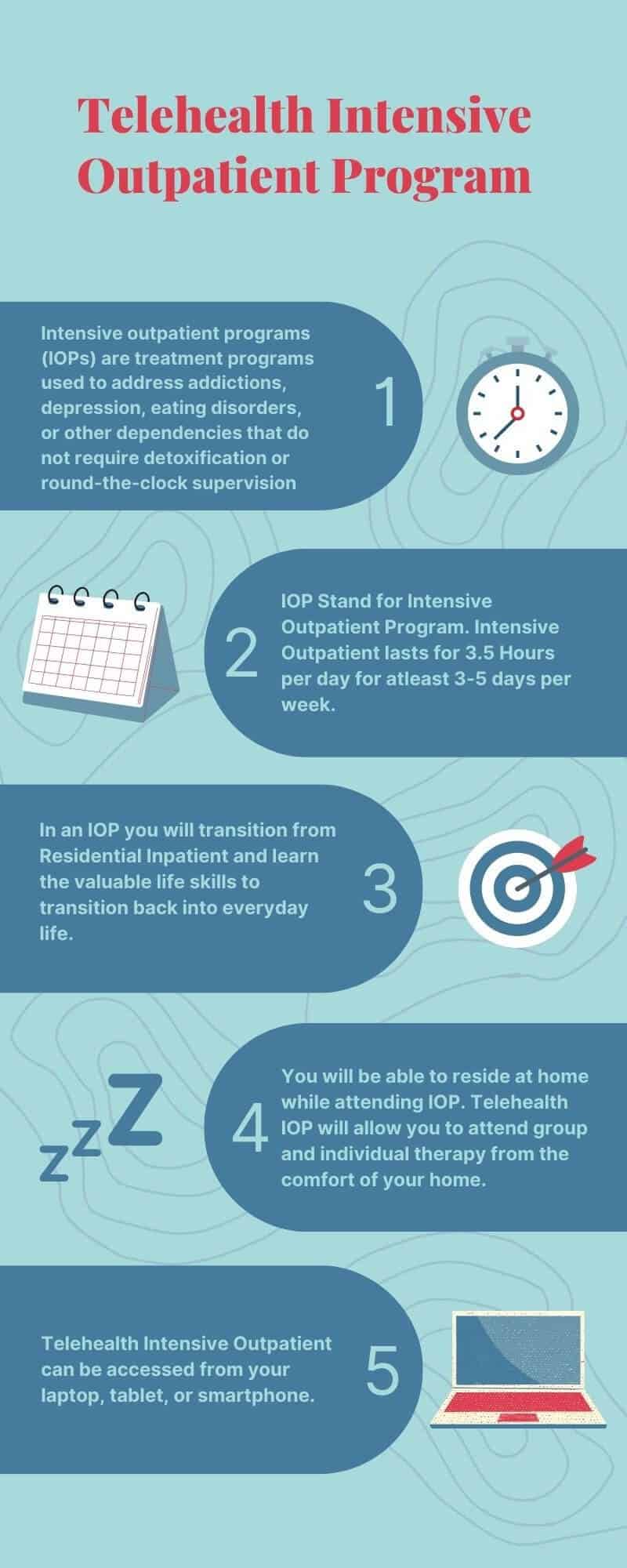The Benefits of Intensive Outpatient Program (IOP) for Long-Term Wellness.
The Benefits of Intensive Outpatient Program (IOP) for Long-Term Wellness.
Blog Article
The Impact of Holistic Therapies on Mind-Body Healing in an Intensive Outpatient Program
In the realm of extensive outpatient programs, the consolidation of alternative treatments has sparked considerable interest and argument among professionals in the area of mental health and wellness and health. The potential synergy in between conventional therapeutic techniques and alternative techniques in promoting alternative health continues to be a subject ripe for expedition and analysis.
Integrating Holistic Therapies in IOP
Incorporating alternative therapies into Extensive Outpatient Programs (IOP) can enhance the total well-being and therapy results of people seeking psychological wellness support. All natural treatments focus on treating the entire person, addressing not only the symptoms however likewise the underlying reasons for mental health concerns. By integrating methods such as yoga exercise, meditation, art therapy, and acupuncture right into IOP settings, individuals can experience a much more thorough strategy to their therapy.

Advantages of Yoga and Meditation
By instilling IOP settings with alternative treatments like yoga exercise and reflection, individuals can access an array of advantages that add to their mental and psychological well-being. Yoga exercise, with its concentrate on physical positions, breathing strategies, and mindfulness, can assist individuals decrease stress, stress and anxiety, and anxiety. The practice of yoga exercise promotes leisure and improves overall mood by releasing endorphins, the body's natural feel-good chemicals. Additionally, yoga improves self-awareness and cultivates a sense of internal peace, which can be particularly beneficial for people undergoing intensive outpatient therapy.
Reflection, on the other hand, concentrates on educating the mind to attain a state of clarity and psychological peace. By incorporating meditation into their routine, individuals in an IOP can learn to handle competing thoughts, enhance focus, and grow a much more favorable expectation on life. Reflection techniques have actually been shown to lower signs of PTSD, enhance emotional resilience, and promote much better rest patterns, every one of which are critical components of the recovery process in intensive outpatient programs. For that reason, incorporating yoga and reflection right into IOP setups can substantially improve the psychological and psychological health of people seeking holistic recovery.
Acupuncture for Mind-Body Healing
Acupuncture, a typical Chinese medicine method entailing the insertion of slim needles right into particular factors on the body, provides a distinct technique to mind-body healing by targeting power flow and promoting alternative wellness. This old strategy is based upon the idea of Qi, the body's vital force, flowing along meridians or paths. By stimulating particular acupoints, acupuncturists aim to bring back the equilibrium of Qi, which is thought to be important for general wellness and health.

Furthermore, acupuncture is significantly being integrated into Western medication practices to complement conventional treatments for numerous psychological health problems, supplying an all natural strategy that thinks about the interconnectedness of the body and mind in promoting recovery and health.
Mindfulness Techniques in Treatment
Increasing on the realm of all natural treatments, mindfulness methods play an essential role in therapy by promoting a deeper link in between the mind and body for overall wellness. In the context of an intensive outpatient program, including mindfulness strategies can help people develop self-awareness, control emotions, and decrease anxiety degrees.

Mindfulness techniques can additionally assist in damaging the cycle of adverse idea patterns and behaviors that may contribute to mental health obstacles. By urging individuals to observe their ideas without attachment or judgment, mindfulness cultivates a sense of approval and compassion in the direction of oneself. This practice can bring about boosted psychological durability, improved Bonuses coping systems, and a greater feeling of inner peace. Inevitably, integrating mindfulness strategies into therapy strategies can equip individuals to proactively take part in their healing trip and promote all natural wellness.
Evaluating Holistic Treatments' Efficacy

By incorporating i loved this measurable information with qualitative responses, researchers can get a more alternative understanding of the effectiveness of these treatments in advertising mind-body healing within an extensive outpatient program. Such examinations are important for informing evidence-based methods and optimizing all natural treatment techniques for individuals seeking detailed wellness.
Conclusion
In verdict, the combination of holistic therapies such as yoga exercise, reflection, acupuncture, and mindfulness methods in an extensive outpatient program can have a significant effect on mind-body recovery. These treatments use an even more detailed method to therapy by attending to the physical, psychological, and spiritual elements of a person's well-being. Assessing the effectiveness of these all natural treatments is crucial in comprehending their potential benefits in improving the total healing procedure for people in an outpatient setting.
Report this page